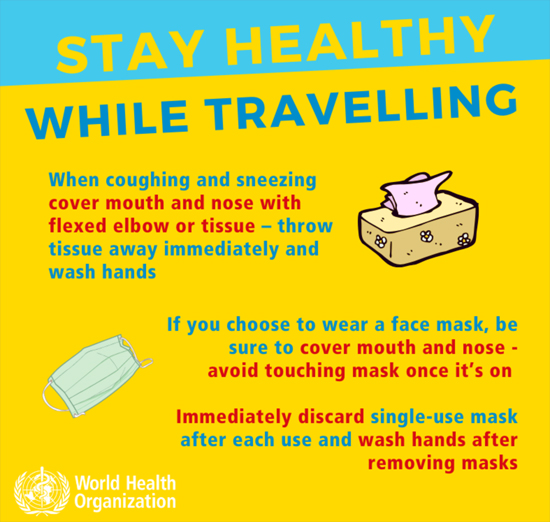 |
|
|
|
Derek Maylor, NW BT Unions H&S Co-ord member provides current information on the Coronavirus: Symptoms are fever, cough and shortness of breath. The outbreak originated among stall holders and people who visited the Huanan / South China Seafood Wholesale Market. Some of the latest cases had no links to the market, and there is evidence of limited human-to-human transmission. Cases have been confirmed in people who travelled from Wuhan to Shenzhen, as well as to Japan and Thailand, but there has been no further spread in those locations. The World Health Organisation (WHO) states that while there is evidence of limited human-to-human transmission, currently there is no clear evidence of sustained transmission between people. Whilst some health-care workers have been infected, the indication are that infection is not transmitting easily between people. The WHO and International SOS are monitoring the situation, and based on the available information, WHO advises against any travel restrictions. Some countries are now screening people arriving from China at their ports of entry (airports, ports, railways), and it is anticipated more countries will increase surveillance. It is important that people are:
Sourced:
Coronaviruses
(CoV) are a large family of viruses that cause illness ranging from the common
cold to more severe diseases such as Middle East Respiratory Syndrome
(MERS-CoV) and Severe Acute Respiratory Syndrome (SARS-CoV). A novel
coronavirus (nCoV) is a new strain that has not been previously identified in
humans.
Coronaviruses
are zoonotic, meaning they are transmitted between animals and people.
Detailed investigations found that SARS-CoV was transmitted from civet
cats to humans and MERS-CoV from dromedary camels to humans. Several known
coronaviruses are circulating in animals that have not yet infected humans.
On 31 December
2019, the WHO China Country Office was informed of cases of
pneumonia of unknown etiology (unknown cause) detected in Wuhan City, Hubei
Province of China. A novel coronavirus (2019-nCoV) was identified as the
causative virus by Chinese authorities on 7 January.
On 10 January,
WHO published a range of interim guidance for all countries on how they can
prepare for this virus, including how to monitor for sick people, test samples,
treat patients, control infection in health centres, maintain the right
supplies, and communicate with the public about this new virus.
Common signs
of infection include respiratory symptoms, fever, cough, shortness of breath
and breathing difficulties. In more severe cases, infection can cause
pneumonia, severe acute respiratory syndrome, kidney failure and even
death.
Standard
recommendations to prevent infection spread include regular hand washing,
covering mouth and nose when coughing and sneezing, thoroughly cooking meat and
eggs. Avoid close contact with anyone showing symptoms of respiratory illness
such as coughing and sneezing.
Based on
currently available information, WHO does not recommend any restriction of
travel or trade. Countries are encouraged to continue strengthening their
preparedness for health emergencies in line with the International Health
Regulations (2005).
Wuhan in China, 100 cases a day,
epicentre of outbreak – reached out to Bangkok, Hong Kong, USA. Screening in
some countries and restricted travel to Wuhan. Suspected case, incubation
period of up to 14 days.
Source still not known, animal/seafood
possibilities.
ACTION – in Wuhan everyone must wear masks,
shut down some transport, discouraged travel in/out. If (you) feel sick
particularly with a very high temperature and suspect that you have been with
someone who recently visited the Wuhan part of China – ring GP/NHS locally
rather than attend a clinic to get further advice – do not worry or overreact, virus’s come and
go.
It is expected to “fizzle out”, we do not
have a specific vaccine to counter it, it is very slightly possible that it
will break in to a full blown pandemic [with most countries around the world
having cases] this is unlikely because of the type of virus.
ADVICE – if you have a pandemic plan [BT Group
do] get it out and brush it off just in case; find out if any employees have
been to Asia recently and advise them to look after their own welfare but do
not panic them.
Collated
Derek Maylor 23 January 2020
You can download this report as a word document here
|

